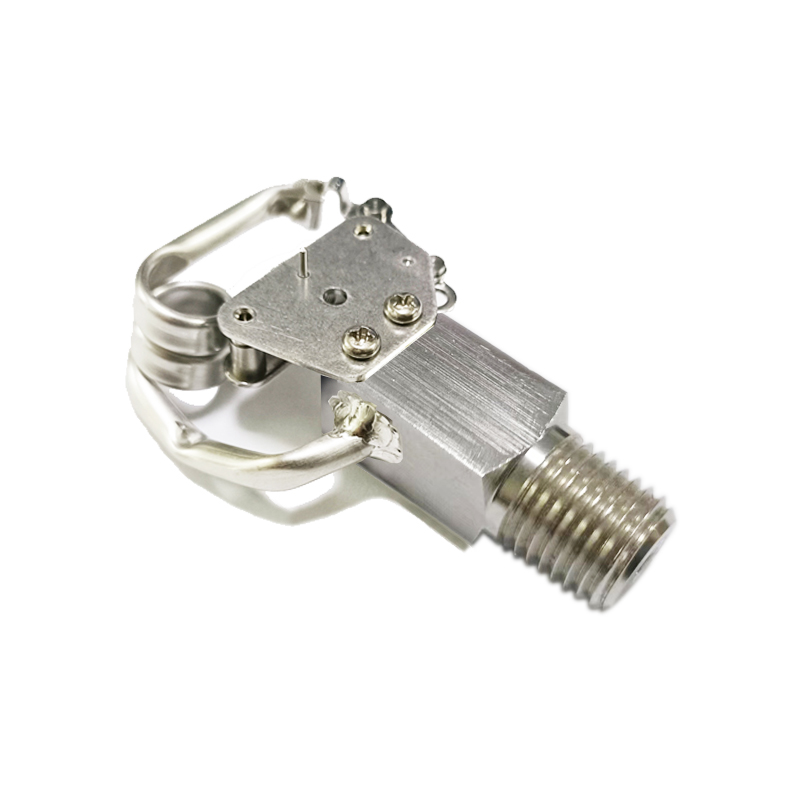
Jul . 29, 2024 17:31 Back to list
Innovative Differential Pressure Gauge Diaphragm Solutions for Enhanced Measurement Precision and Reliability
Understanding Differential Pressure Gauge Diaphragm Products
In various industrial and laboratory applications, accurately measuring pressure differences is crucial for ensuring process efficiency, safety, and equipment integrity. One of the instruments designed specifically for this purpose is the differential pressure gauge, often featuring a diaphragm mechanism. This article explores the key aspects of differential pressure gauge diaphragm products, including their working principles, applications, and advantages.
Working Principle
A differential pressure gauge measures the pressure difference between two points in a system. The diaphragm, a flexible membrane, is a vital component of this instrument. When there is a pressure difference across the diaphragm, it flexes, causing a mechanical movement. This movement is then translated into a readable output, often in the form of a dial or a digital readout. Generally, there are two types of pressure being measured positive pressure with respect to the atmospheric pressure and negative pressure, which can indicate a vacuum.
The sensitivity and responsiveness of the diaphragm are critical for achieving accurate measurements. The material of the diaphragm is chosen based on the specific application and the type of media being measured—liquid, gas, or vapor. Common materials include stainless steel, silicone, and other elastomers, which provide durability and resistance to various chemicals.
Applications
Differential pressure gauges with diaphragm technology are used across numerous industries. In the oil and gas sector, they are employed to monitor pressure drops in pipelines and equipment. In the water treatment industry, these gauges help in assessing the performance of filtration systems by measuring the pressure before and after the filter. HVAC systems also utilize differential pressure gauges to ensure efficient airflow and proper operation of ventilation equipment.
differential pressure gauge diaphragm product

Moreover, in pharmaceuticals and food processing, maintaining strict control over pressure differentials helps ensure product purity and compliance with safety regulations. Applications in clean rooms often involve the monitoring of pressure differences to prevent contamination from outside air sources.
Advantages of Differential Pressure Gauges with Diaphragms
One of the most significant advantages of using diaphragm-type differential pressure gauges is their ability to provide accurate and stable readings, even in harsh operating conditions. Their design minimizes the impact of vibration and pulsation, common in many industrial environments, which can affect other types of pressure measurement devices.
Another benefit is their versatility. Diaphragm gauges can handle a wide range of pressures and are compatible with various fluids, making them suitable for diverse applications. They are also relatively easy to install and require minimal maintenance, contributing to lower operational costs over time.
Additionally, diaphragm-based gauges frequently come with various options and features, such as local displays, remote monitoring capabilities, and different output signals (analog or digital). This flexibility allows users to select the gauge that best suits their specific needs, accommodating modern requirements for automation and data acquisition.
Conclusion
In conclusion, differential pressure gauge diaphragm products play a pivotal role in measuring pressure differences across various industries. Their robust design, accuracy, and versatility make them essential tools for monitoring and ensuring the efficiency of numerous processes. Understanding how these instruments function and recognizing their benefits allows engineers and technicians to make informed decisions when selecting the appropriate pressure measuring devices for their specific applications. As industries continue to evolve and demand higher precision, diaphragm-type differential pressure gauges will remain vital in meeting these challenges.
-
High-Precision 5 Valve Manifold Differential Pressure Gauge Suppliers
NewsApr.29,2025
-
High-Precision Diaphragm Vacuum Pressure Gauges Manufacturers & Quotes
NewsApr.29,2025
-
Omega Differential Pressure Gauges High Accuracy & Durability
NewsApr.28,2025
-
Low Pressure Differential Pressure Gauges Precision Solutions & Quotes
NewsApr.28,2025
-
Digital Diaphragm Pressure Gaauge Precision Measurement & OEM Quotes
NewsApr.28,2025
-
Differential Pressure Gauge China Price High-Accuracy & Best Quotes
NewsApr.28,2025
